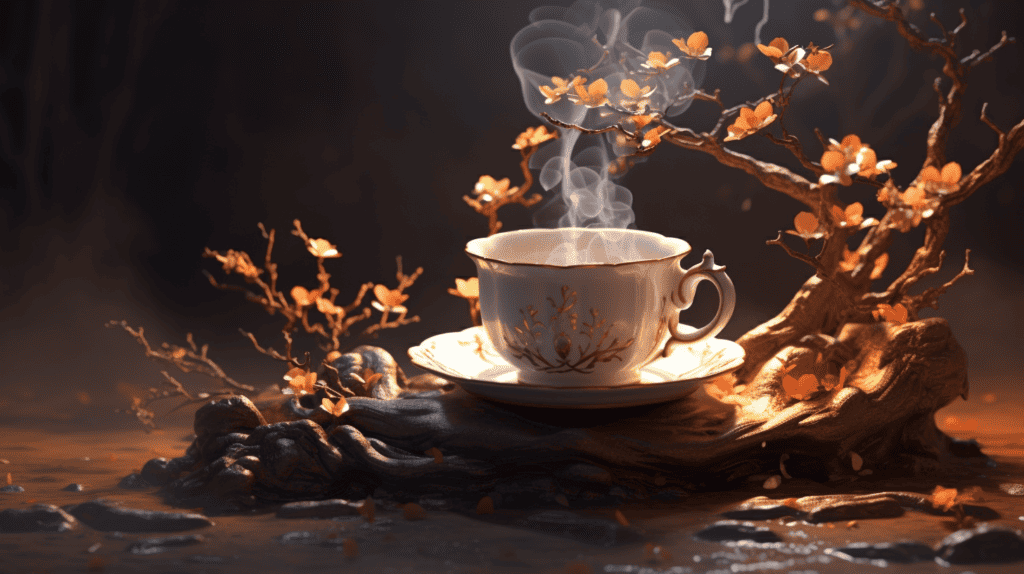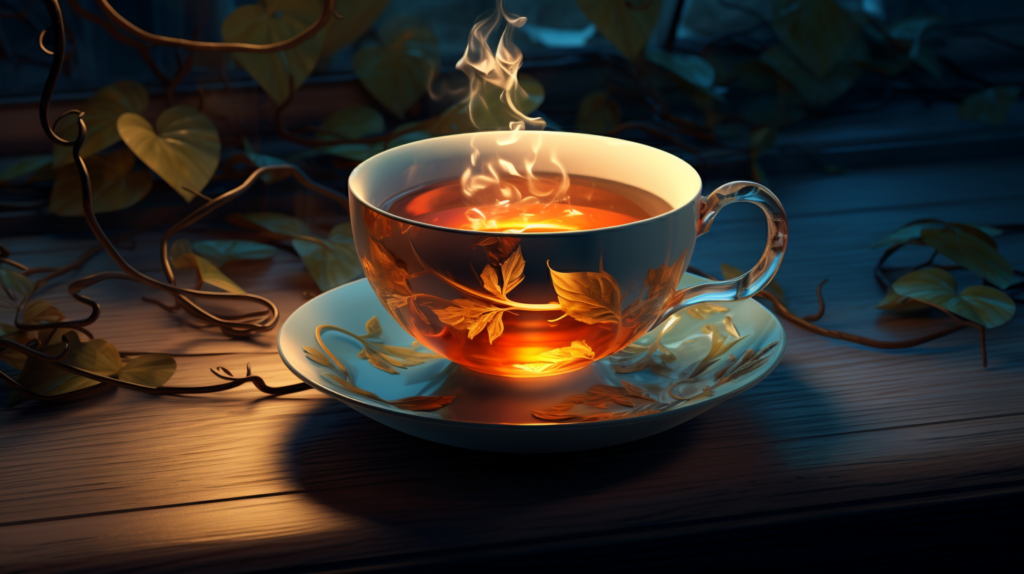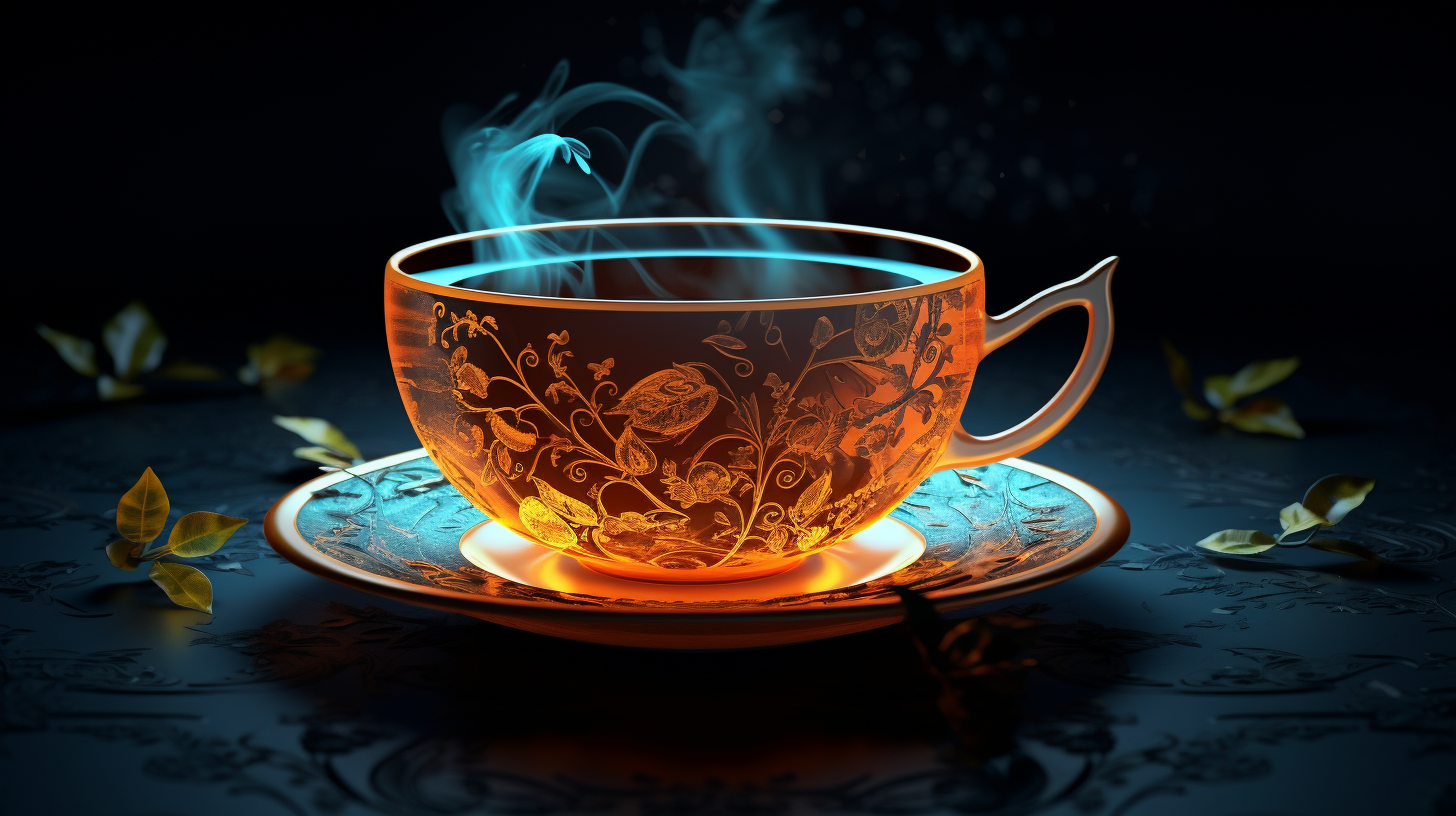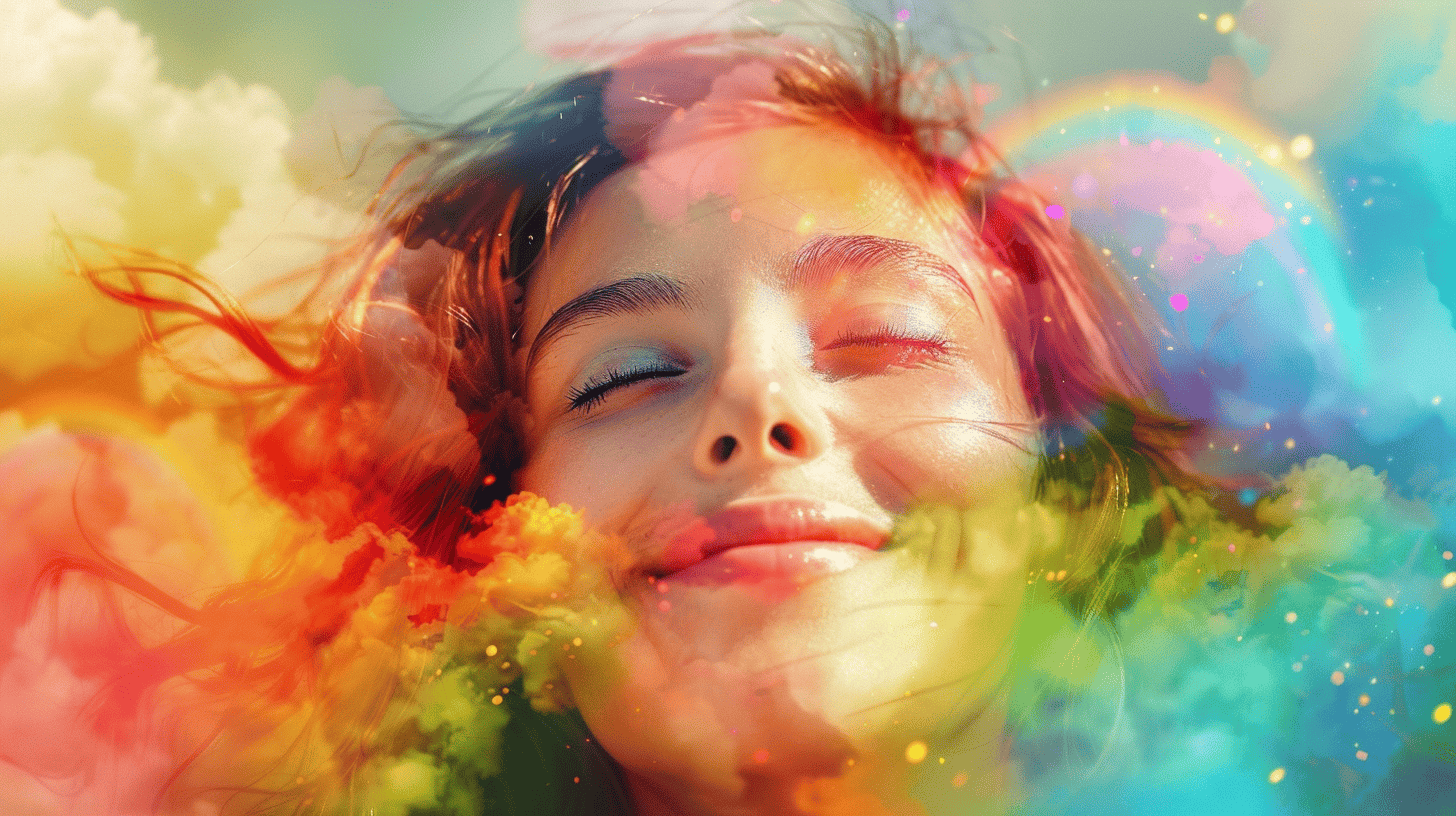Tea and meditation are two time-honored practices that connect the body, mind, and spirit. Learn how to incorporate some of the best tea for meditation practice in this comprehensive guide.
As an avid meditator and tea enthusiast, I have experimented extensively with different types of tea to enhance my meditation sessions. I’ve found that sipping tea mindfully before and even during meditation helps ease anxiety, promote relaxation, and get me into a peaceful, focused state faster.
Over years of trial and error, I’ve honed in on my favorite teas and herbal allies to use at different times and for different meditative states. Here, I share everything I’ve learned about how to incorporate tea into a meditation practice for beginners and more advanced meditators alike.
Key Takeaways:
- Green, black, herbal, floral, and fermented teas all provide unique benefits for focused, calming, energizing, or balancing effects before meditation
- Mindfully sipping tea before and even during meditation keeps you grounded in sensory awareness for a more fruitful practice
- Visualization techniques and tea-inspired aromatherapy can align chakras and energy centers for meditation
- Discover your perfect meditation teas to custom-craft mind-body centeredness and inner peace
Top 10 Teas to Calm Your Mind Before Meditation
These are my “desert island” teas that I turn to again and again when I want to get centered and calm before sitting down to meditate. They run the gamut from caffeinated to herbaceous to floral, so there’s something for every palate and desired effect.
I like to sip these slowly, focusing on the flavor and aroma of the tea itself as a mini mindfulness exercise as the compounds within ease my transition into a deeper meditative state.
1. Chamomile Tea: The Gentle Meditative Infusion
Delicate, honey-sweet chamomile is my go-to when I’m feeling anxious or overstimulated. Rich in the compound apigenin, chamomile has been shown to lower anxiety and promote sleepiness – perfect for calming the mind before meditation.
I like to sip a strong cup slowly, closing my eyes and focusing on the floral aroma and silky mouthfeel as the herbs work their magic. By the time I reach the bottom of my chamomile cup, I’m perfectly relaxed and ready to meditate without distraction.
Tip: Sweeten your chamomile tea with a bit of honey to amplify its natural calming effects!
2. Japanese Green Tea: Sharp Mind, Clear Thoughts
Japanese green teas like matcha, sencha, and gyokuro contain enough caffeine and L-theanine to produce an effect of “calm alertness” that’s ideal for meditation. I sip some sencha green tea when I want my thoughts to be sharp yet focused during my session.
Green tea also has a grassy, vegetal flavor that I find grounding. As I drink, I focus on the sensation of the liquid washing through my mouth and down my throat, keeping me anchored in the present moment.
3. Mint Tea: Uplifting Aromas for Meditation

Bursting with bright, refreshing flavor, peppermint tea is an excellent option when you’re feeling sluggish or unfocused pre-meditation. Its sharp aroma works like smelling salts to awaken the mind.
I usually sweeten my cup with a spoonful of honey and sip slowly, inhaling the minty fragrance deeply with each breath. As the menthol and volatile compounds permeate my system, I feel a rush of clarity and wakefulness that gets me energized for my meditation session.
| Tea Type | Key Benefits |
| Green Tea | Sharpens focus and concentration |
| Black Tea | Centers and steadies the mind |
| Herbal Tea | Promotes relaxation and eases anxiety |
| Oolong Tea | Balances and stabilizes mood |
| Floral Tea | Uplifts and adds sensory stimulation |
4. Warm Up Your Chakras with Spiced Chai Tea
Complexly flavored, gently caffeinated chai tea is uniquely suited to getting your energy flowing before meditation. Its mix of spices like ginger, cardamom, cinnamon, and clove enliven the senses while supporting relaxation.
As I slowly savor the layers of flavor in my chai, I visualize each spice radiating warmth through a different chakra, aligning my energy centers from root to crown. By the last sip, my body buzzes with vibrant yet calm energy, putting me in the perfect meditative headspace.
5. White Tea: Pure Leaves for Quiet Contemplation
Light, delicate white tea, made from young tea leaves and buds, contains very little caffeine, making it ideal for quiet contemplation. Its refreshing yet smooth flavor mirrors the clear, focused state of mind I strive for in meditation.
When I drink white tea before meditating, I’m consciously preparing my mind to stillness, just as the tranquil tea steeps quietly in my cup. Each sweet sip washes through me like a mini mind cleanse, allowing clarity and space for inner insight to arise.
6. Oolong Tea: Semi-Oxidized Leaves to Balance the Mind
With rich flavor and a perfectly balanced caffeine content, oolong tea is outstanding for promoting emotional equilibrium before meditation. Its earthy aroma, hints of honey, and smooth finish never overstimulate but leave me feeling vibrantly centered and at peace.
I like to gongfu brew oolong tea just as I prepare to sit, carefully tending the leaves as the flavors evolve and intermingle like changing thoughts and feelings during meditation. The focus required to properly brew oolong helps settle my mind before I begin observing my breath and sensations.
7. Rooibos Tea: Caffeine-Free Clarity
Naturally caffeine-free, South African redbush tea (AKA rooibos) offers smooth, subtly sweet flavor reminiscent of honeybush. Its reddish brew looks dramatic yet drinks smooth and uncomplicated—mirroring the quiet, focused mindset I try to cultivate before meditation.
I often mix rooibos with herbs like lemon balm or rose petals for a caffeine-free herbal tea that eases me into presence without overstimulation. As I slowly savor its mellow flavor, I find myself sinking into an effortless state perfect for transitioning into stillness.
8. Matcha Green Tea: Alert Calm for Meditation
As a powdered green tea, matcha provides focused energy from both caffeine and L-theanine. Whisked into a bright emerald elixir and sipped mindfully, it washes away mental fog and leaves alert calm in its place—ideal for meditation.
I whisk my own stone-ground ceremonial grade matcha by hand in the traditional style just before I meditate. The graceful, flowing movements integrate elements of tea ceremony into my preparation, allowing me to enter a meditative state even before I begin formally observing my breath.
9. Blooming Flower Teas to Awaken Your Senses
Watching flower teas like chrysanthemum or jasmine literally bloom and unfurl as they steep makes for a delightful sensory experience that engages sight, sound, smell, and taste—perfect for transitioning into present moment awareness for meditation.
I brew blooming teas in a glass teapot and watch as the flowers dance and slowly open. As I pour the floral brew into my cup, I close my eyes and inhale, letting the delicate perfume infuse my senses. The first sip floods my mouth with layers of flavor and sensation that ground me firmly in the here and now, ready to begin my meditation.
10. Herbal Teas to Soothe Anxiety Before Meditation
Herbal infusions crafted from botanicals like chamomile, lemon balm, lavender, passionflower, and rose petals make excellent natural sedatives to promote relaxation before meditation. Their gentle flavors and aromas envelope the senses, quieting a busy mind.
I often blend my own anxiety-easing herbal tea with ingredients like skullcap, holy basil, and ashwagandha for maximum stress relief. As I slowly sip, visualizing my worries steeping out into the tea, I feel my nerves unwinding and calm taking over.
Boost Your Meditation Focus with Earthy Pu-erh Tea

With woodsy depths and refreshing bitterness, aged pu-erh tea provides a gratifying sensory experience along with caffeine and L-theanine to sharpen focus before meditation.
Known for its dark, earthy flavor and profound biochemical complexity, pu-erh tea has long been used in China to aid digestion, encourage blood flow, and boost energy. The fermented black tea also contains actives like statins and polyphenols linked with improved heart health and weight loss.
Beyond impressive nutrition, I find pu-erh’s bold character ideal for promoting alertness and engagement pre-meditation. As I slowly sip the smooth yet lively brew, layers of flavor unfold across my palate: earth and loam, dried cherries, cocoa and caramel, lingering whispers of camphor and pine. I relish pu-erh’s evolving taste profile as the perfect anchor to keep me present in the moment as I transition into stillness.
The moderate dose of caffeine coupled with abundant L-theanine in aged pu-erh leaves me feeling vibrant and focused without anxiety or jitters—making it one of my regular pre-meditation brews when I want extra mental clarity. I like to gongfu brew pu-erh leaf in a small clay teapot, then close my eyes and inhale the woodsy aroma between slow, contemplative sips. By the time I reach the end of my cup, a calm yet awake state of mind for meditation has fully bloomed.
Chamomile Tea: The Gentle Meditative Infusion
Delicate chamomile soothes the spirit with its honeyed aroma and natural apigenin, readying the mind for blissful stillness.
Of all the herbal allies to incorporate into a meditation practice, delicate chamomile is perhaps the most classic for transitioning gently into stillness and presence. Revered for millennia for its soothing, sleepy effects on mind and body, chamomile makes a perfect pre-meditation brew when anxiety runs high.
Rich in powerful medicinal compounds like apigenin and chamazulene, the pretty white flowers offer lasting relaxation from the inside out. Beyond potent anti-inflammatory, anti-anxiety, and sedative benefits, I adore chamomile tea simply for its sheer loveliness – honeyed floral aroma, pale yellow color, and silken mouthfeel.
Sipping its sweet nectar mindfully does seem to have an alchemical effect, washing away tension and irritation as gently as a soft rain. By the time I reach the bottom of my favorite handmade blue and white porcelain chamomile cup, I feel perfectly at peace–my thoughts quieted, my nerves soothed, my breath relaxed into an easy rhythm.
I’ve found chamomile infusion unmatched in its ability to calm both acute stress and general, free-floating anxiety. The herb’s delicate flavor and fragrance seem custom-made to hit reset on the nervous system, allowing our natural state of tranquil presence to shine through any mental disturbance. It helps balance mood, improve sleep quality, and promote feelings of joy and contentment. For those reasons alone, keeping a tin of whole dried chamomile flowers on hand for a quick calming cup before meditation is an excellent idea!
Beyond drinking chamomile tea itself, I incorporate the charming flowers into my actual meditation space decor as a reminder to stay present and relaxed. The dried blooms make for subtly uplifting potpourri, while essential oil extracted from fresh chamomile flowers mists beautifully to scent your sacred room. Allow the herb’s sweet medicine to infuse your whole practice for maximum chill!
Japanese Green Tea: Sharp Mind, Clear Thoughts
Brisk, grassy Japanese greens deliver the perfect balance of gentle stimulation and deep calm to put you in an ideal mindset for fruitful meditation.
To balance rich umami flavor with Zen-like tranquility, you can’t beat the exquisite green teas of Japan. Bred over centuries for refined taste, health benefits, and ritual significance, these verdant leaves offer notable nutritive and biochemical assets for better living. Beyond impressive nutrition, I’ve found Japanese greens uniquely able to deliver both awake stimulation and profound serenity – making them perfectly suited to pre-meditation.
Delicate Japanese green tea like gyokuro, kabusecha, and sencha contain less caffeine than black tea or coffee but enough to confer sustained energy and sharp focus, along with abundant relaxation-promoting L-theanine. This makes for an effect I think of as “calm alertness” – promoting relaxation and attention simultaneously. It’s my favorite for readying both mind and body for meditation without overstimulating.
I like to slowly sip and savor premium Sencha Asamushi as part of my pre-meditation ritual. Its sweet, oceanic depth washes through my palate, immediately centering my awareness in the present moment. The liquid’s pale green color and delicately grassy aroma keep me grounded yet awake as I visualize negative energy, stress, and thoughts steeping into the tea until nothing remains but peaceful presence.
When I set down my emptied sencha cup, body and mind feel perfectly poised for meditation – quietly vibrating with balanced energy, fully inhabiting the now. I effortlessly settle into posture and begin observing the breath, my focus sharp yet relaxed into an expansive 360 degree awareness.
Pro Tip: Matcha green tea powder is an exceptional pre-meditation drink for clean mental energy and deep calm!
Warm Up Your Chakras with Spiced Chai Tea
Let fragrant chai tea open your energy centers and align your whole being for blissful meditation.
Far more than just a tasty beverage, traditional Masala chai incorporates numerous botanicals deliberately chosen to promote specific medicinal effects on body and mind. Beyond rich sensory pleasure from complex flavors and warming aromas, a proper cup of chai
contains potent herbs to benefit digestion, circulation, respiration, and immunity for overall balance and wellbeing.
In India, chai spices like cardamom, cinnamon, clove, ginger, and black pepper are considered powerful healers. Science now confirms their impressive pharmacological assets – from anti-inflammatory and antimicrobial benefits to antioxidants and more. Beyond impressive nutrition and activity on a biochemical level, I’ve found chai uniquely able to open, align, and energize the system before meditation.
As I slowly sip piquant, honey-sweet chai, I consciously breathe the heating spices into each of my seven main chakras, starting from root and moving upward to crown. I visualize the earthy cardamom enlivening my root chakra at the base of my spine, golden turmeric warming my sacral chakra in my lower belly, ginger’s zing activating my solar plexus, nutty cinnamon inspiring my heart center, peppery cloves igniting my throat, pungent black pepper energizing my third eye, and aromatic fennel seeds uplifting my crown.
Chakra by chakra, I feel energy and blood flow increasing, blockages clearing, my whole system humming and radiant. By my last sip of chai I’m vibrant yet supremely centered, body and mind awake and aligned – perfectly primed for meditation.
Beyond drinking the tea itself, I like to diffuse an essential oil blend matching my chai spices to fragrance my meditation space. As their sweet and spicy aroma permeates the air, I visualize each scent as a color corresponding to different chakras – golden cinnamon swirling into my heart, vibrant ginger sparking my solar plexus orange, cool peppermint lighting my third eye bright blue. This simple aromatherapy chakra meditation aligns my energy effortlessly before I sit quietly to observe the breath and body.
However you choose to enjoy it – sipping the brew, sniffing the spice blend, or even using chais signature spices like ginger in savory dishes – allow vibrant Masala chai into your self-care rituals and meditation practice to stoke inner fire for true mind-body balance and bliss.
Conclusion on Best Tea for Meditation
The age-old practices of tea drinking and meditation both profoundly connect us more deeply to the present moment for reduced stress and expanded awareness. Carefully incorporating different teas into your personal meditation ritual can enhance mental clarity, ease anxiety, align energy centers, and elevate your practice to new levels of insight.
Over years of experimentation, I’ve discovered just how powerfully tea’s taste, aroma, appearance, and ritual can inform and deepen a meditation practice when woven together consciously. I encourage fellow tea and meditation aficionados to play with different types of teas, steeping methods, herbs and spices, sweeteners, vessels, and consumption experiences until you hone in on your perfect pairings. May we all continue steeping body, mind and spirit in harmony through these profound ancient wellness arts.
FAQ on Meditation Practice and the Benefits of Tea
Q: How can I use tea to enhance my ability to meditate?
A: There isn’t a one-size-fits-all answer, but generally, introducing a calming tea into your meditation routine can help enhance your meditation experience. The practice of making tea itself can be a form of mindfulness meditation. Savoring each sip of tea can aid in helping you to focus, relax, and center your mind.
Q: Which tea blend is the best for meditation?
A: It’s subjective as the “best” tea blend for meditation can vary from person to person. However, many practitioners find that a herbal tea blend, like that of lemon balm tea or jasmine green tea, is an excellent option. These teas are not only rich in antioxidants but also have calming and centering effects which can enhance your ability to sit still and meditate.
Q: Is there any scientific basis for using tea for meditation?
A: Yes, certain types of tea contain elements that help induce a state of calm and enhance alpha brain waves, which are associated with relaxation and heightened creativity – key benefits of meditation. For example, green tea is widely used for meditation as it contains a compound called GABA which helps reduce anxiety and induces relaxation without making you feel jittery.
Q: Can drinking tea help reduce stress and anxiety?
A: Yes, drinking certain types of tea can help reduce stress and anxiety. For instance, a study found that it’s particularly beneficial to drink matcha tea, which Buddhist monks have been drinking for centuries to remain calm and centered during long periods of meditation.
Q: How does tea and meditation work together?
A: The act of making and drinking tea can be a form of mindfulness meditation, helping focus the mind and bring about a sense of calm. In addition, the beneficial compounds in certain types of tea can enhance the physical and mental benefits of meditation, such as reducing stress and anxiety.
Q: How can tea help me meditate?
A: Drinking a calming tea before or during meditation can create a calming and centering effect, which helps you to focus. Certain teas, like jasmine green tea or a rosemary-based blend, can help induce a tranquil state of mind, which is optimal for meditation.
Q: Is green tea a good choice for tea meditation?
A: Absolutely! Green tea is widely used and highly recommended for tea meditation. It’s rich in antioxidants and contains a natural calming agent which aids in enhancing the mental and physical benefits of meditating.
Q: If I haven’t tried tea meditation before, where should I start?
A: If you haven’t tried tea meditation before, a simple way to start is by incorporating a herbal tea blend into your existing meditation practice. Make the process of preparing and drinking the tea part of your meditation. Centring and focusing on the smell, temperature and flavor of the tea can deepen your meditation experience.
Q: Does the flavor of the tea matter in tea and meditation?
A: While the health benefits of the tea are important, the flavor can also contribute to your experience. A tea that’s enjoyed by your senses can make for a more pleasant and fulfilling meditation. However, it’s a personal preference and varies from person to person.
Q: Can I use tea for guided meditation?
A: Absolutely, tea can be used as an excellent supplement to guided meditation. Drinking a calming tea blend can help clear the mind and enhance focus, making it easier to follow guided instructions. In fact, there are specific guided meditations designed around tea drinking to enhance the overall experience.





Leave a Reply